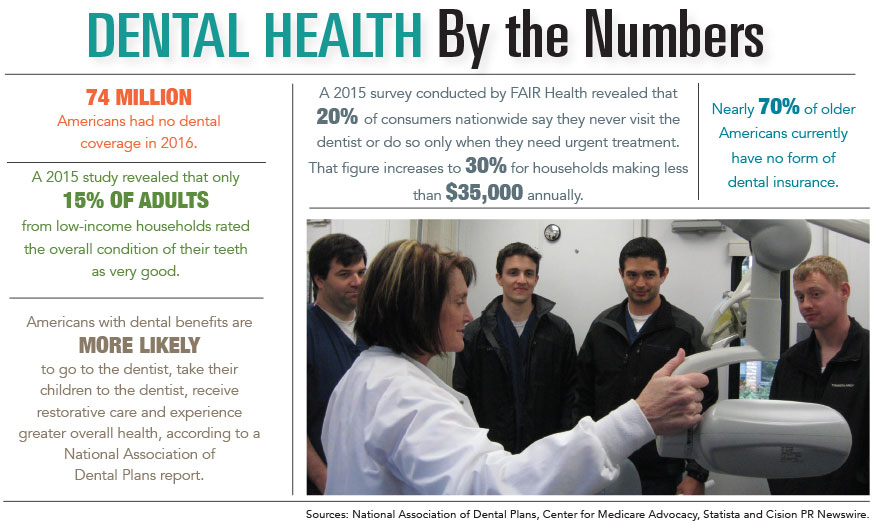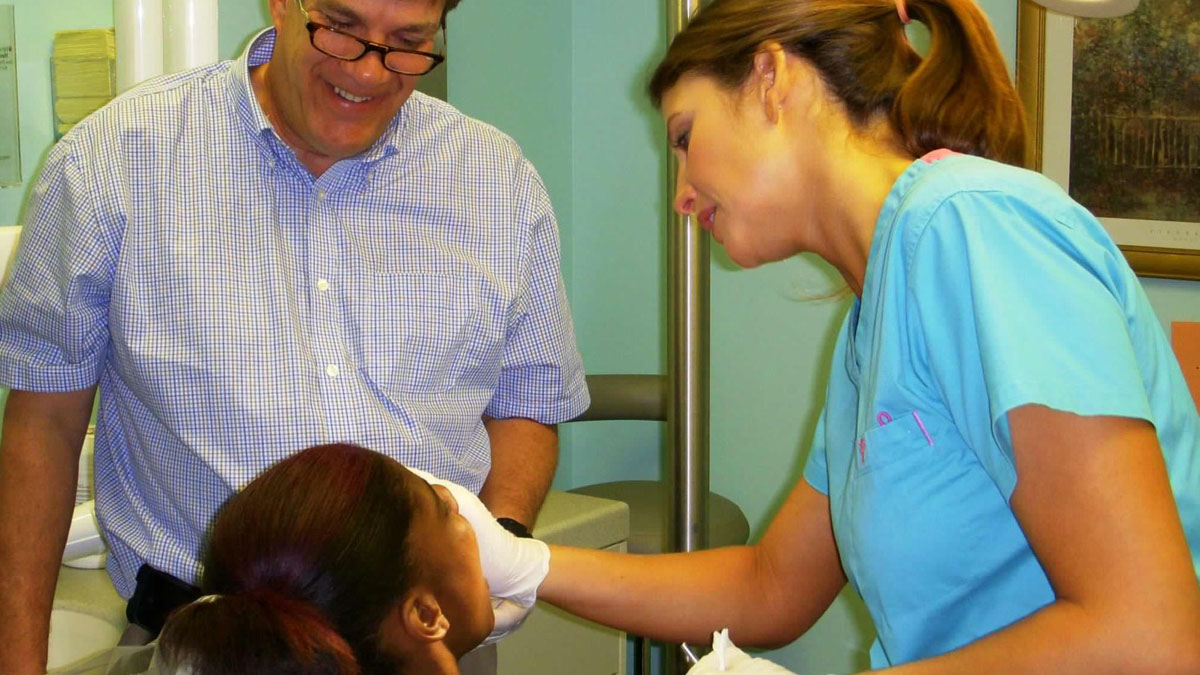Most people understand the importance of oral health, but dental services can be cost-prohibitive for people with low incomes and no insurance coverage. Free dental health clinics not only offer underserved populations access to care – preventive oral maintenance serves as an early warning system that can detect serious health problems such as diabetes and heart disease.
Greenville Free Medical Clinic
Greenville Free Medical Clinic provides no cost dental care in addition to health, specialist, pharmaceutical and mental health services to eligible, low-income uninsured Greenville County residents. Addressing an identified community need, GFMC opened in 1987. Area health leadership helped spearhead its establishment, and local doctors, nurses and volunteers all were eager to assist, said GFMC Executive Director Suzie Foley.
The dental community sought to contribute its part, and GFMC launched its dental services in 1994. During the first decade, the dental side primarily offered emergency procedures, Foley explained. In the early 2000s, GFMC began collaborating with Greenville Tech’s Dental Hygiene program to have dental students provide cleanings and routine care.
Since 2009, a joint partnership with Bon Secours St. Francis Hospital and MUSC College of Dental Medicine has brought in dental students to work a rotation in the Upstate, with a focus on fillings and basic restorative care.
Students transitioned to virtual learning during COVID-19 and are not currently providing any services. Meanwhile, GFMC has scaled back to offering acute services only two nights a week through volunteer community dentists.
“We’re hoping in the fall that students will be back doing their dental services,” noted Foley.
Shifa Clinic
Established in 2012, Mount Pleasant’s free Shifa Clinic serves uninsured and underserved community members. A project launched by Dr. Reshma Khan, Shifa Clinic runs the gamut of medical care services, provides oral health care and hosts a free food pantry.
Its dental clinic opened in August 2018 as a collaboration between Dr. Khan and dentist Dr. Andy Kloch, who operates a full-time practice in Surfside Beach. Dr. Kloch first volunteered with Shifa in 2016 at a free back-to-school dental screening hosted by the MUSC College of Dental Medicine. The devotion of Dr. Khan and her staff to assisting the needy inspired him to partner with her.
“It’s a group of amazing individuals. They go above and beyond to help people,” stated Dr. Kloch.
Shifa’s dental clinic features a small volunteer staff that essentially includes Dr. Kloch and his wife, Hannah, who usually serves as his dental assistant. They have also had MUSC dental students and occasionally a dental hygienist volunteer. When the clinic opened, it offered extraction-only emergency care but has since expanded to restorative care and cleanings. Shifa currently has no capacity for root canals, dentures, crowns or caps, and generally refers patients to MUSC for those procedures.
Oral health as health indicator
Household income and being uninsured help determine a patient’s eligibility for services at Shifa. Dr. Kloch observed that someone living at or below the poverty line often faces difficult financial decisions between buying food or addressing health issues such as dental care, which can be expensive even with insurance coverage.
At GFMC, qualifying individuals – with documentation verifying household income and Greenville residency – can access the clinic’s complete menu of services. Often a patient’s initial visit is for dental care, said Foley, so a toothache might be the impetus that brings them in, and then a dentist identifies other significant health issues. For instance, teeth and jaw pain can augur a larger problem, like diabetes or mouth cancer.
Remarked Foley: “It’s really amazing to see how much overlap there is between oral health and overall health.”
Dr. Kloch echoed these sentiments: “The mouth is connected to the rest of the body. It affects everybody’s daily life. With broken or missing teeth, it can be difficult to function. It can take a toll on both your physical and mental health.”
He cited the example of a job interview, in which poor oral hygiene can diminish self-confidence and impair hiring prospects.
Adapting during a pandemic
During COVID-19, GFMC has adapted safety protocols to protect patients, students and staff. It began implementing safety measures in early March, everything from temperature screenings and transitioning to more telehealth services to erecting plexiglass barriers, recommending 6-foot separation, wearing full PPE – gowns, masks, gloves and face shields – and limiting capacity within the clinic. The dental clinic requires even more precautions because of close contact to aerosols, including installing specially designed clear plexiglass shields on each dental chair and medical-grade HEPA air purifiers throughout the clinic, stated Foley.
At Shifa, the health clinic side has been limiting capacity to six staff and volunteers at a time, increasing telehealth and treating fewer patients in-person. In normal times, Dr. Kloch would operate Shifa’s dental clinic twice a month on a Friday and Saturday. As of July 31, he had not seen any patients since early March. He hoped to re-open the clinic on Aug. 7.
“Us being able to provide care to these underserved people is so important,” asserted Dr. Kloch. “It’s an absolute need, not just in Charleston but in all of South Carolina.”
Additional sources: U.S. National Library of Medicine, National Institutes of Health.
By Colin McCandless

